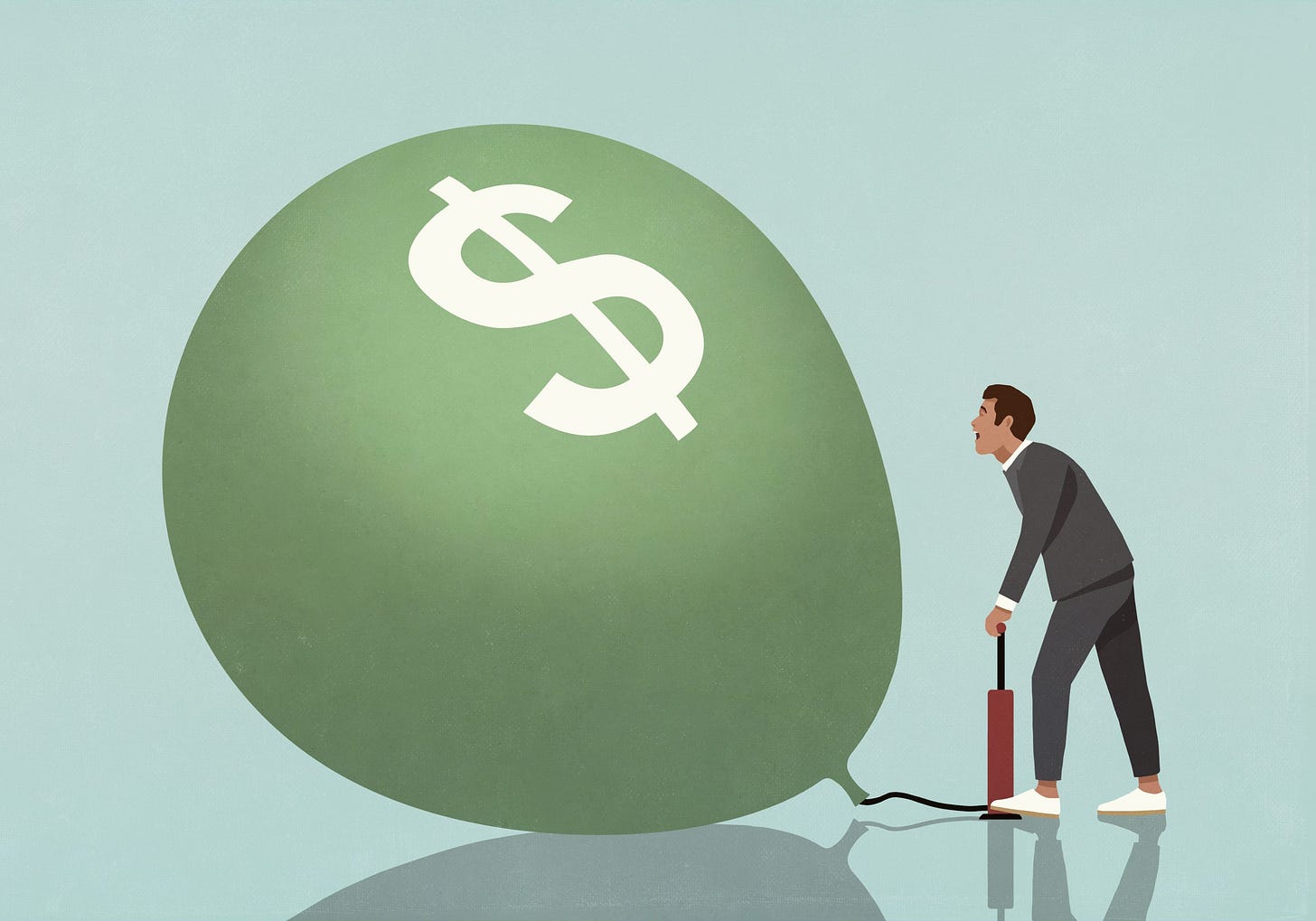Inflation is a tax that redistributes wealth in a perverse fashion
The typical picture in people’s minds of hyperinflation is one of poverty and money stacked up on wheelbarrows. But that doesn’t paint the complete picture...
Written by Michael Fritzell.
A few weeks ago, I wrote a post about Weimar Germany’s hyperinflation in 1919-23 and what lessons investors can draw from that experience.
The key takeaway from my research is that inflation is a hidden tax that redistributes wealth. But necessarily from poor to rich. It redistributes wealth in a perverse fashion.
So-called “inflation” is a measure of how fast prices are rising. It’s the result of too much spending chasing a limited amount of goods. In the economy, that spending typically comes from either households, companies or the government.
Spending can be elevated for short periods when households or companies borrow to finance consumption or investment. An example was the US housing boom in 2004-07, when households borrowed money to buy properties they couldn’t afford. Inflation rose during the boom, and deflation soon followed.
But a sustained high level of inflation only occurs when governments print money to fund projects they cannot afford. That’s exactly what happened in 1919-23 in the Weimar Republic, named after the city of Weimar, where Germany’s government was at the time.
The Weimar government was unwilling to raise taxes to finance post-war spending and reparations payments. And so, it ran massive deficits funded by a printing press.
The typical picture in people’s minds of Weimar Germany’s hyperinflation is one of poverty and money stacked up on wheelbarrows. But that doesn’t paint the complete picture. While the inflation led some people into poverty, others became wildly rich from the episode.
The people who lost were ordinary salary workers. Their fixed salaries failed to keep up with inflation. The vast majority of people who put their money in banks also saw their inflation-adjusted savings whittle down to almost nothing. And finally, the elderly who relied on fixed pensions found it challenging to survive, often relying on relatives to pay for daily expenses.
Others got fabulously rich. Company owners learned how to benefit from the hyperinflation. They used personal relationships at banks to get loans at fixed interest rates. Their debt burdens quickly disappeared in the face of record inflation. And their revenues often kept pace with inflation as the prices of the products they sold were adjusted instantaneously.
Then there were brokers and speculators. They set up finance companies to buy and sell foreign currency or stocks, taking a piece of every transaction. As the population became obsessed with buying “material goods” to maintain their purchasing power, the finance companies were there at every step of the way, becoming rich in the process.
It might seem strange for a stock analyst to focus on a particular episode in a specific country over 100 years ago. But Germany’s experience with hyperinflation has a lesson for the world in 2022.
Inflation doesn’t create wealth. It merely redistributes it unfairly: not from rich to poor, but from savers and ordinary workers to company owners and speculators. The ultra-rich already know about the dangers of inflation, and they protect themselves by owning tangible assets such as property, precious metals and stocks.
Politicians who genuinely care about the average individual should try to use honest ways of redistributing wealth. Balance the budget and make sure that the tax system redistributes wealth fairly.
Because by printing money like we did during 2020 and 2021, they’re not only making the average person worse off. They’re also incentivising speculation, benefiting those who are already at the top of the pyramid.
Michael Fritzell is a full-time writer focusing on stocks in Asia. He is the author of Asian Century Stocks, a Substack focusing on Asian equities.




"by printing money like we did during 2020 and 2021, they’re not only making the average person worse off. They’re also incentivising speculation, benefiting those who are already at the top of the pyramid."
That isn't an unintended consequence arising from economic illiteracy, it's the entire purpose of an inflatable debt-based fiat currency. The goal of the Fed, and every other central bank, has been from day one to enrich the parasitic usurers at the expense of the productive economy, but to do so gradually enough that most people don't notice.